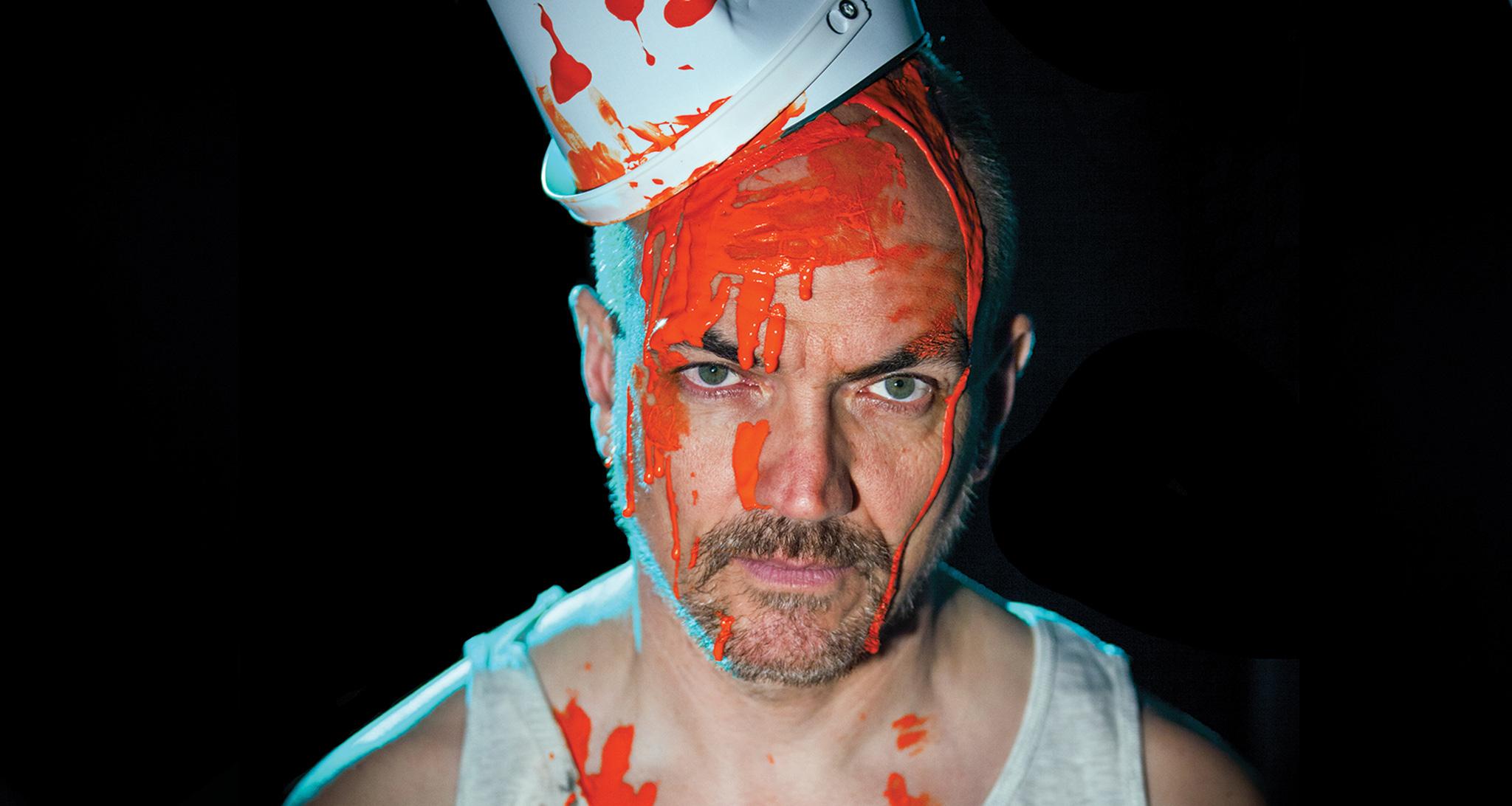Edinburgh Fringe: The Diary of a Madman: ‘Ripely pertinent post-Indyref, post-Brexit’
Themes of national identity and masculinity are deftly drawn in Al Smith’s modern adaptation of Gogol’s short story

Consider Nikolai Gogol’s The Diary of a Madman. Al Smith’s play, based on the Russian dramatist’s comedic short story, thoroughly paints over the original structure, building up the layers to make something quite new. Poprishchin, a downtrodden Russian civil servant sent mad by his own insignificance, becomes Pop Sheeran, a belligerent Scottish dad whose family have for generations been actually employed in the proverbial job of painting the Forth Bridge. But it’s not just paintbrushes that get handed down the male line: severe mental illness also runs in his “black blood”.
Sheeran keeps this “devil” at bay with medication, but one side-effect has particularly challenged his masculinity. And that rugged but fragile edifice is soon taking a battering on all fronts. A fey, posh engineering student named Matthew comes to stay, interning over the summer with Sheeran to test out a new paint for the bridge – one that would make Sheeran and his family trade absolutely redundant. Sheeran is obsessed with status and nobility, but an ancestry app tells him he’s more serf than thane. Matthew meanwhile, is the son of a knight, went to Harrow, and worst of all, seems to have designs on Sheeran’s teenage daughter Sophie. Sheeran’s status as “the man of the house” is suddenly imperilled.
But The Diary of a Madman isn’t just one man’s individual crisis. Sheeran is also obsessed with the past, clinging to Scotland’s traditions and heritage, spewing with an inarticulate rage at the way globalisation – and the casual indifference of a younger generation – are painting out his sense of a national identity. Smith is smart on this theme, which feels ripely pertinent post-Indyref, post-Brexit. And congratulations to him for grabbing the bull by the horns, rather than tiptoeing respectfully around the issue.
Of course it’s a shame when folk traditions are lost, when jobs and craft are imperilled – but the mania for living in the past is also patently self-destructive. Smith makes Sheeran both sympathetic and utterly ridiculous. Hs sense of Scottishness is best encapsulated in Braveheart, a Hollywoodisation of his history. When he begins to lose it, he finds himself talking to the dog.
Smith’s play demands the audience take big leaps, but I found it easy to go with it: his dialogue crackles with wit yet has the tang of truth. Particularly good are the gobby, sparky, lovably obnoxious teenage girls, Sophie and her pal Mel; their interactions are terrifically written and performed by Louise McMenemy and Lois Chimimba. But the cast are uniformly good: Guy Clark as Matthew manages to be both an awkward nerd and have the untouchable grace of the very privately educated, while Liam Brennan is both toweringly tragic and absurdly bluff as Sheeran. As Mavra, his loving, worried wife, Deborah Arnott brings real light and shade.
In fact, they all do: in Christopher Haydon’s finely judged production, we understand and feel for all these characters. Parents can be impossible, teenagers can be cruel, we all have our obsessions and hang-ups that we just can’t shake… but Smith also maps the love beneath. This feels like a real family, and that provides a solid foundation for the wilder excesses of the father’s descent into madness and grounds the ambitious themes of nationalism, masculinity and identity.
Traverse Theatre. Until 28 August
Subscribe to Independent Premium to bookmark this article
Want to bookmark your favourite articles and stories to read or reference later? Start your Independent Premium subscription today.

Join our commenting forum
Join thought-provoking conversations, follow other Independent readers and see their replies